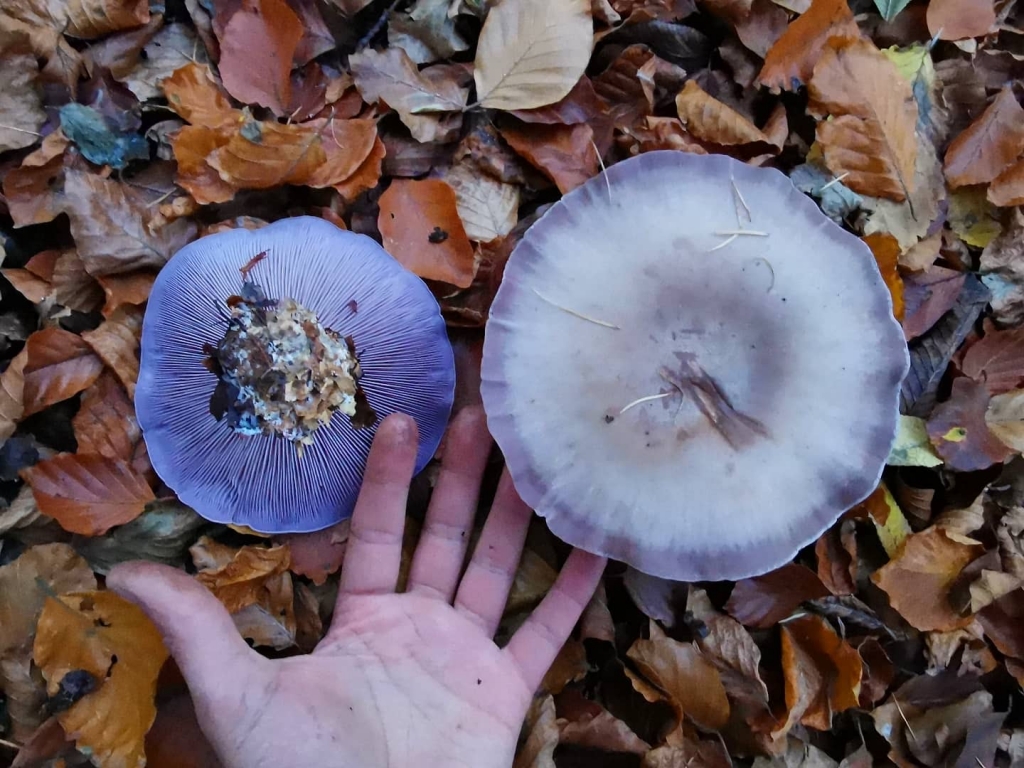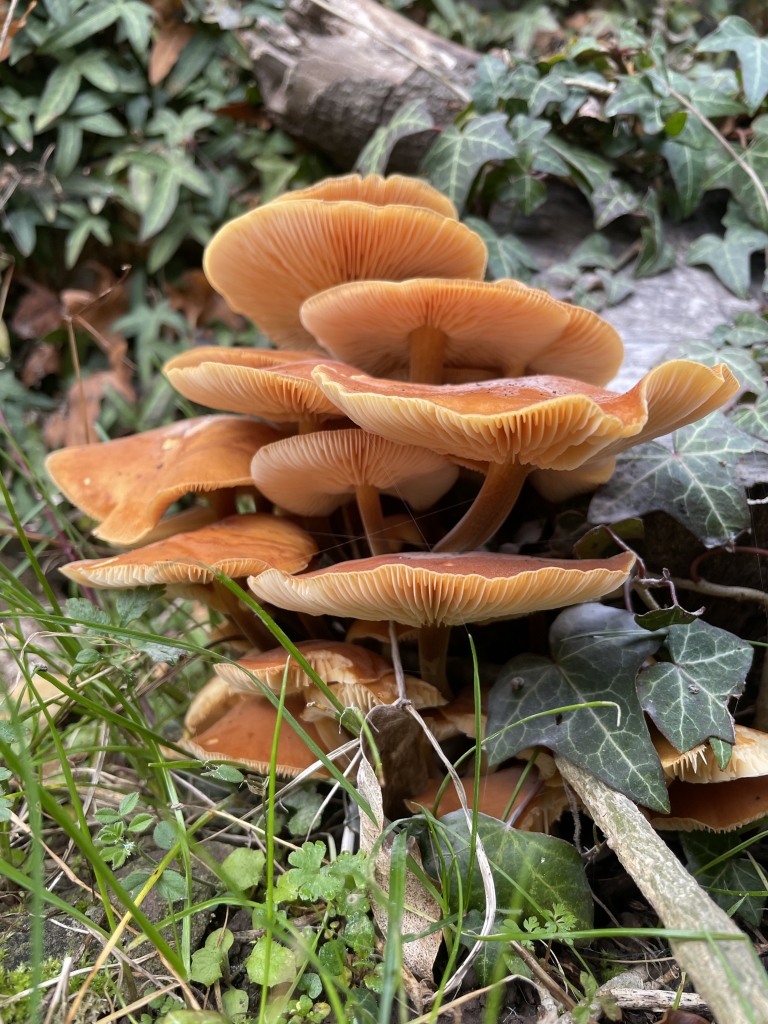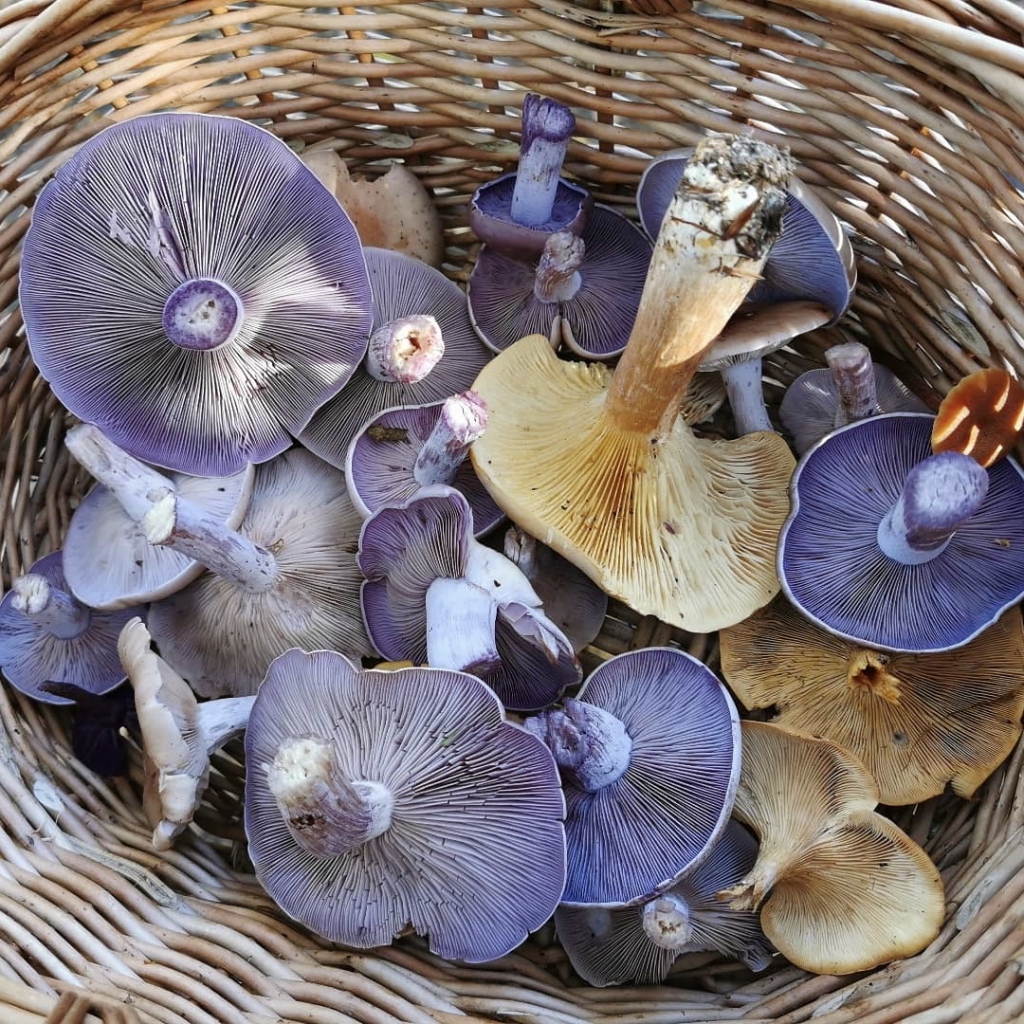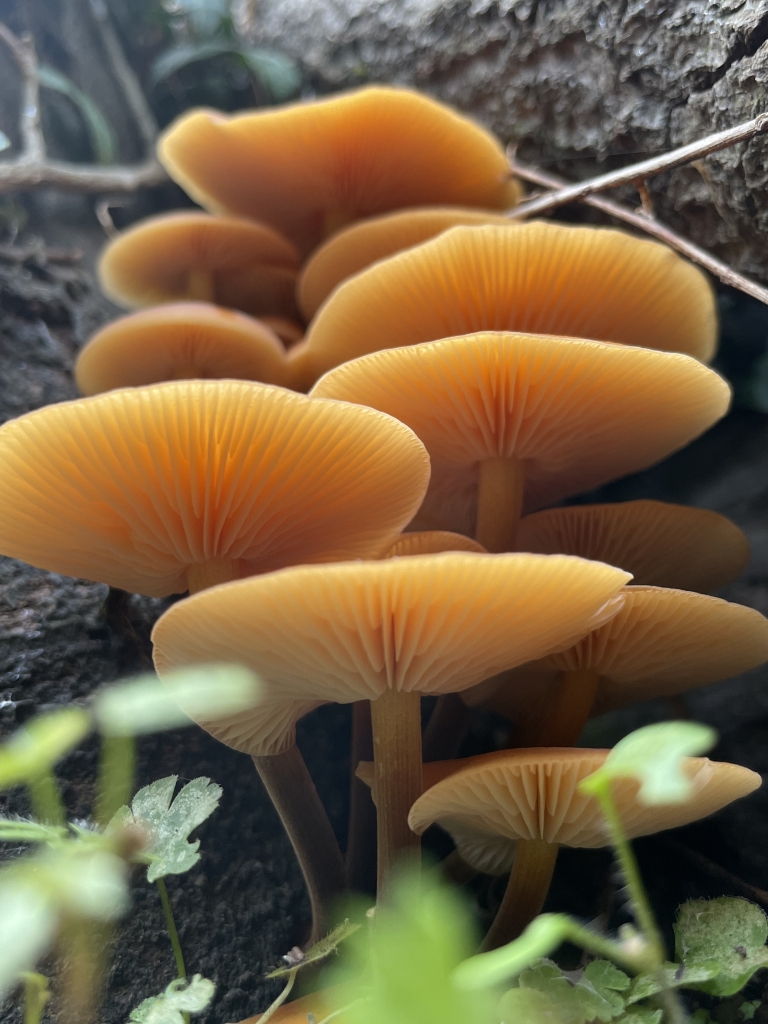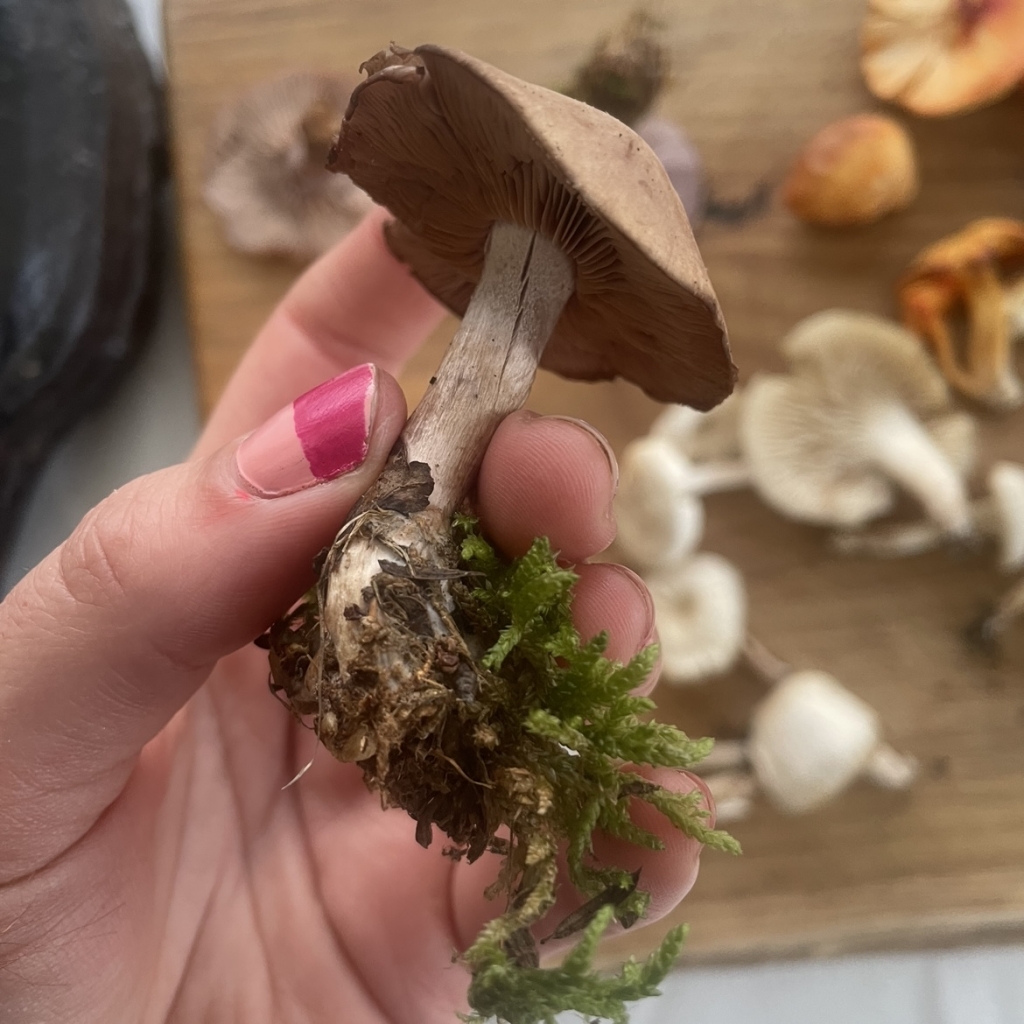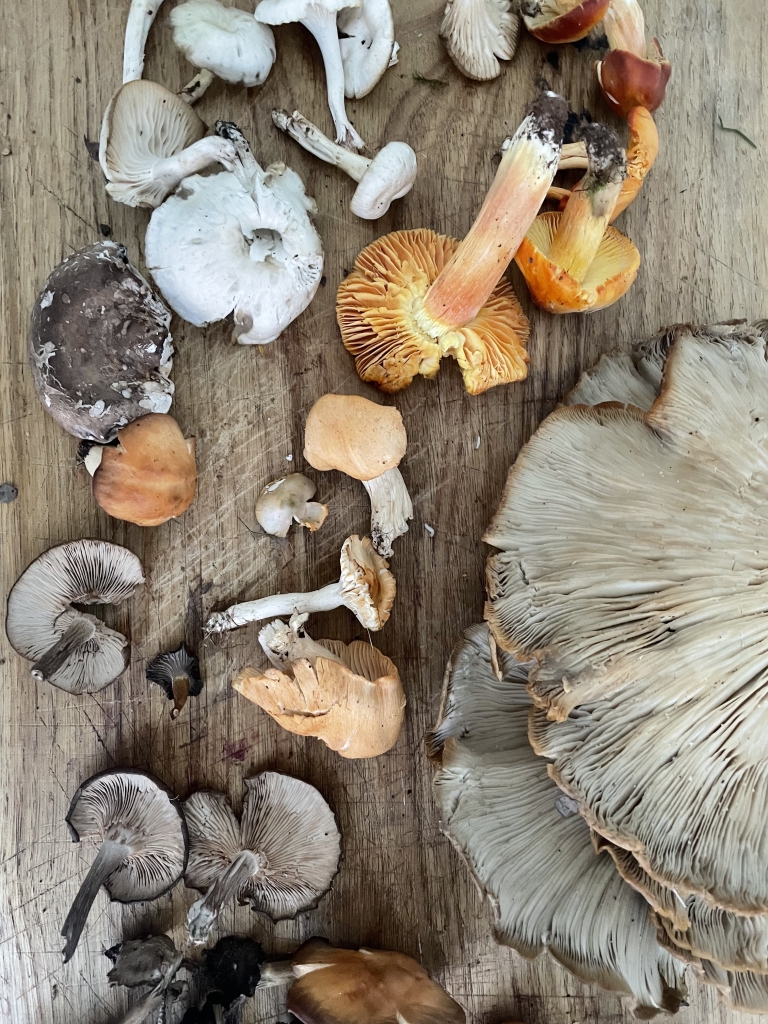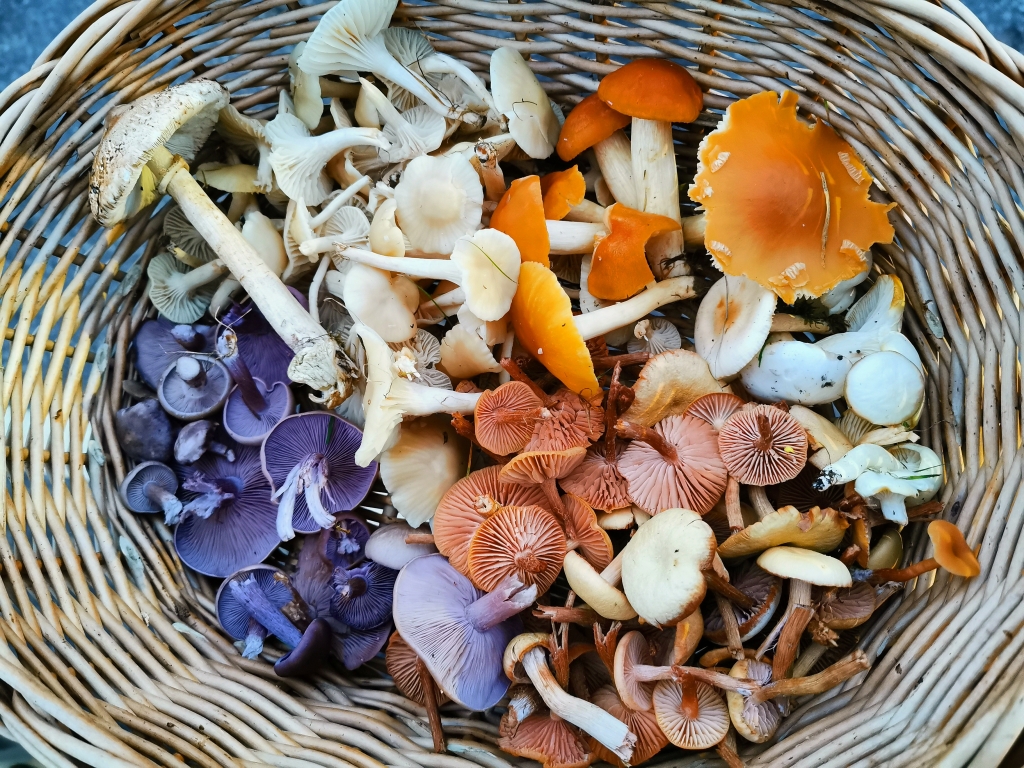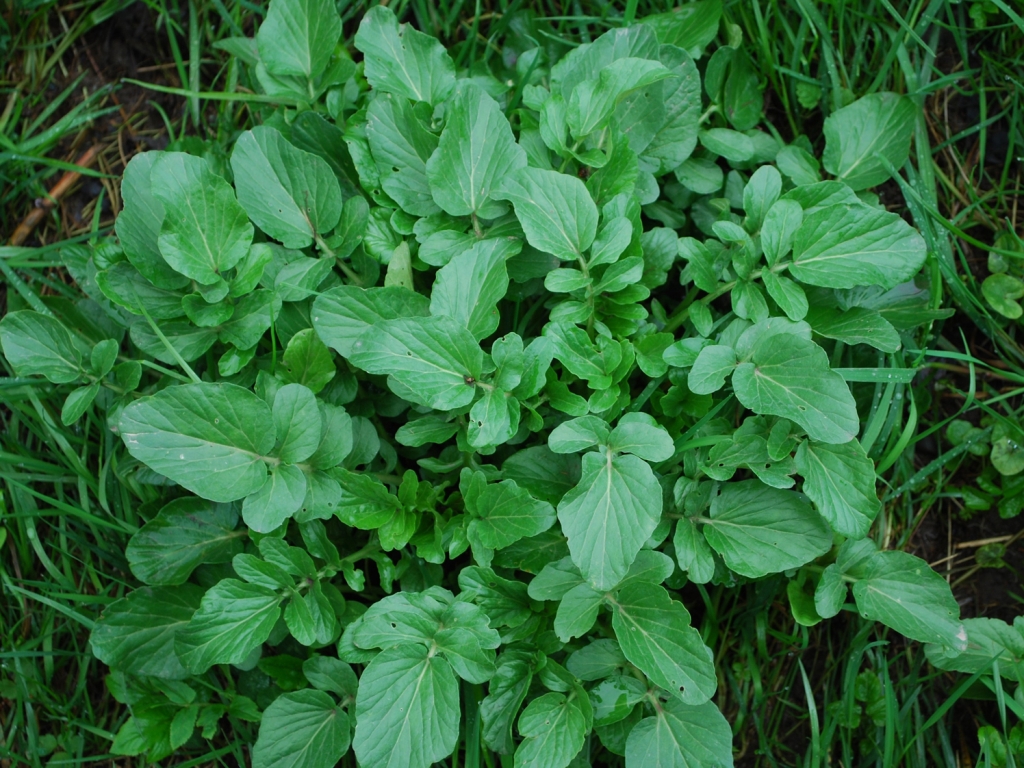Foraging in December 2021
Posted on 30th December 2021
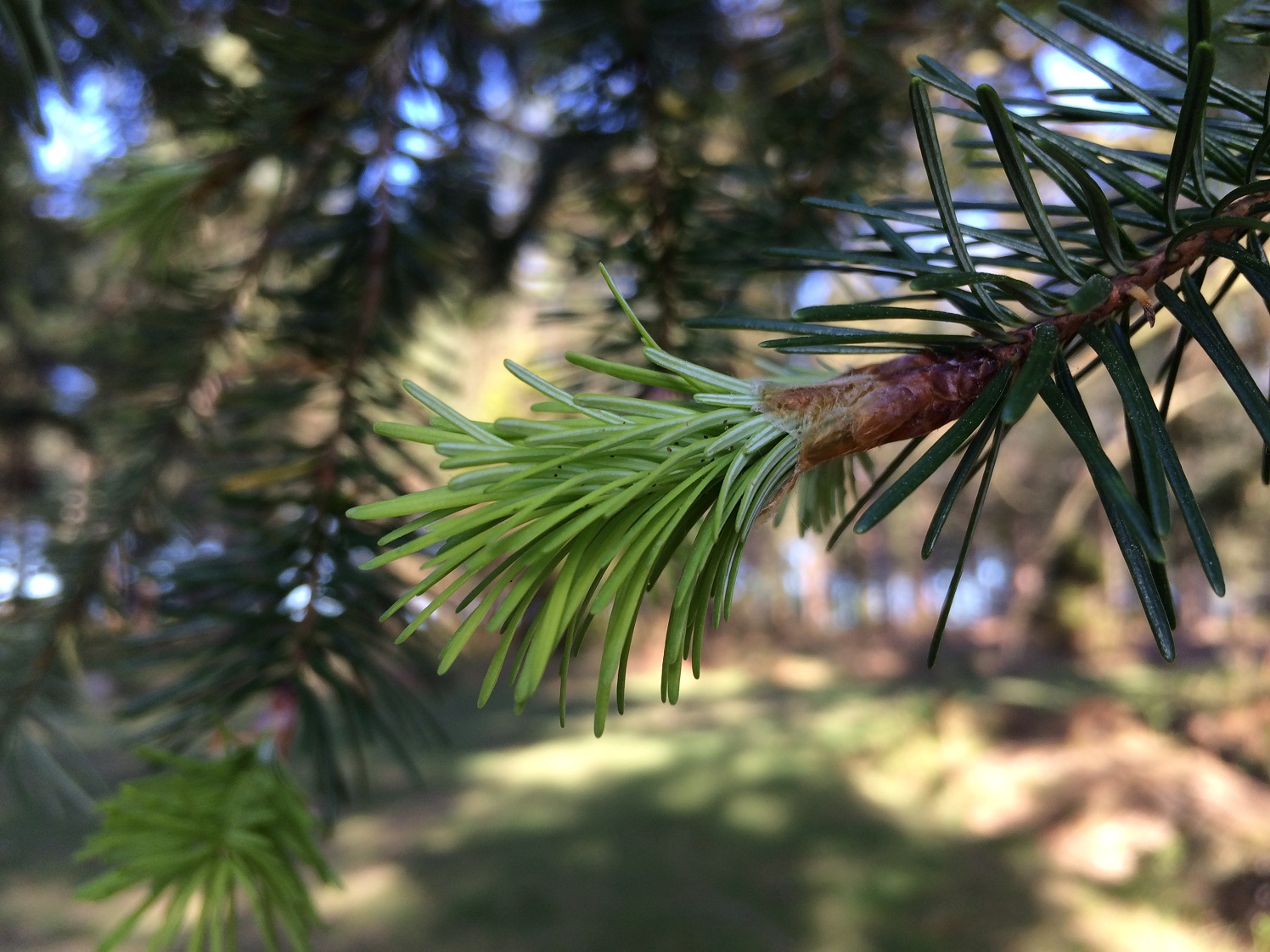
D E C E M B E R
Foraging in December: Here are a few edibles that we’ve found this month
We’ve included some information about a few mushrooms and plants that we’ve been lucky enough to spot whilst out and about this month. Winter foraging requires hats and scarves and layers galore, so wrap up warm and go explore.
Why not have a go at spotting some of these treats yourselves.
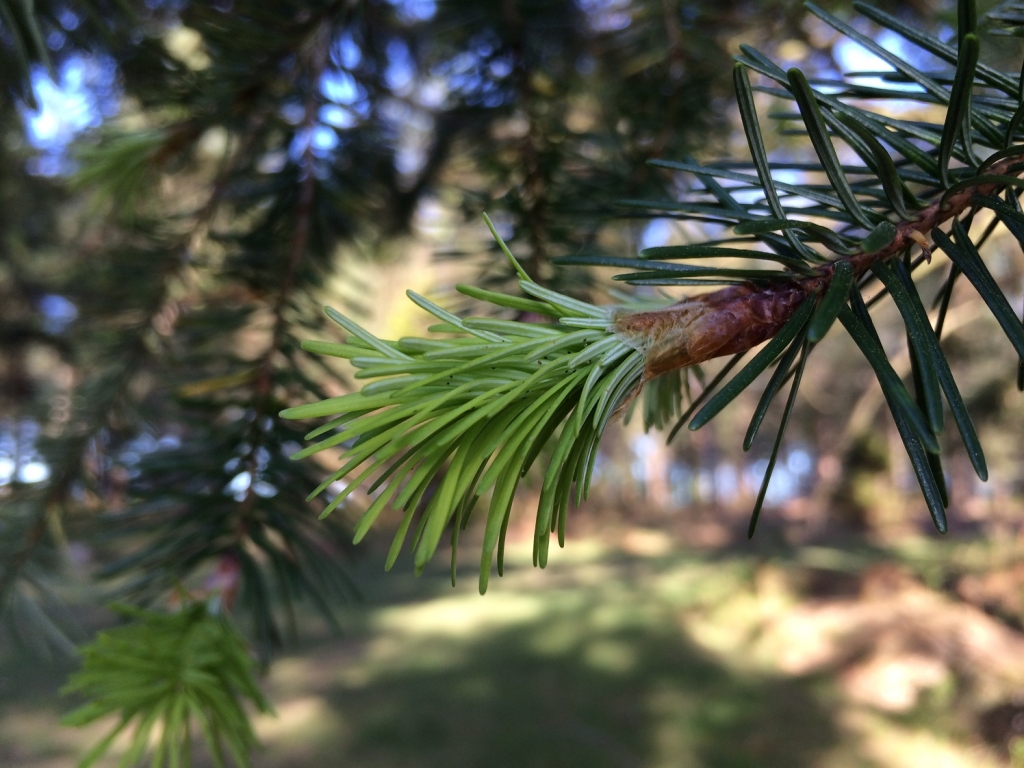
Scientific name: Pseudotsuga menziesii
Douglas Fir is an evergreen tree in the Pine family, native of North America but widely planted in the UK. Although closely related it is not a true Fir. Considered the best of the edible conifers with its rich citrusy aroma, often infused into tea, syrup and spirits.
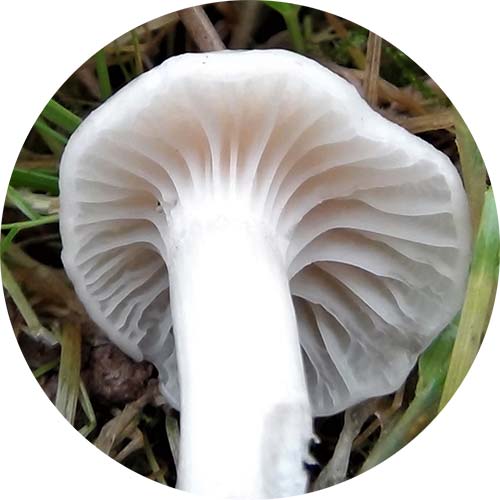
Scientific name: Hygrocybe / Cuphophyllus virgineu
A common and tasty Waxcap but it still prefers undisturbed and untreated land although seems more tolerant than other Waxcaps.
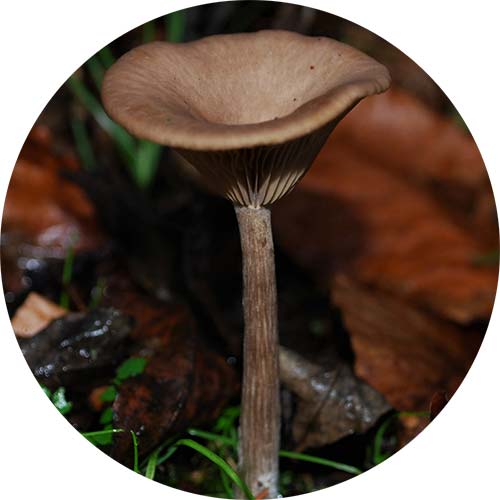
Scientific name: Pseudoclitocybe cyathiformis
Unusual this time of year but because of the mild weather we’ve been experiencing you may be able to spot one!
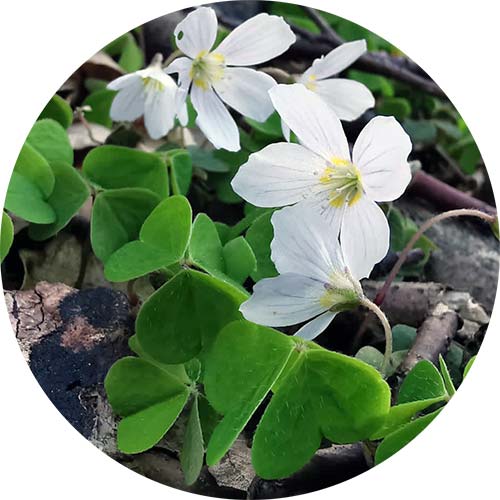
Scientific name: Oxalis acetosell
A refreshingly zingy find when walking through established woodland. This plant tastes very pleasant and is a excellent thirst quencher when foraging, tasting similar to apple peels or lemon.
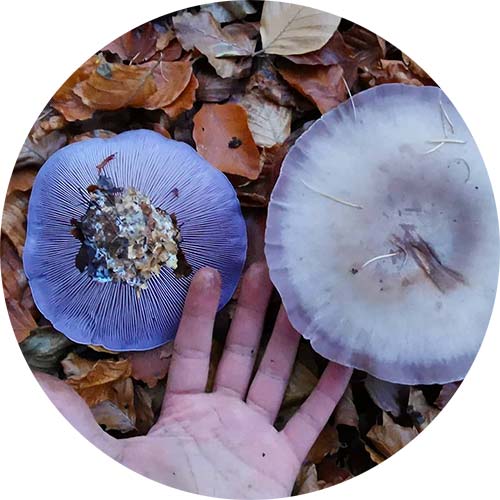
Scientific name: Lepista nuda
A lovely gourmet mushroom that can be found from November through to February when there is not that many other mushrooms about.
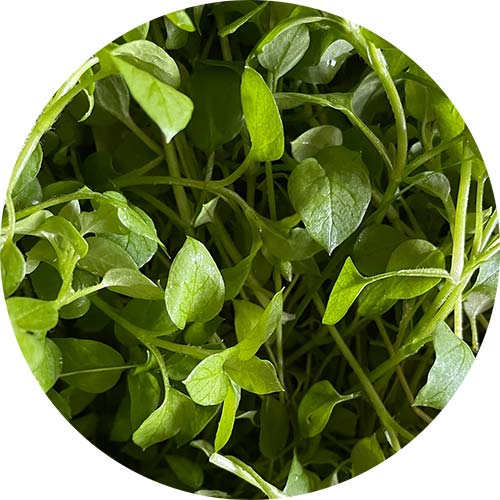
Scientific name: Stellaria media
Also known as starweed, crashes, chickwort, maruns and winterweed. Can be found all year and is a great addition to any salad. A great find for a novice forager. A key identifier for this plant is the line of fine hairs or ‘mohican’ running down one side of the stem between the leaf nodes
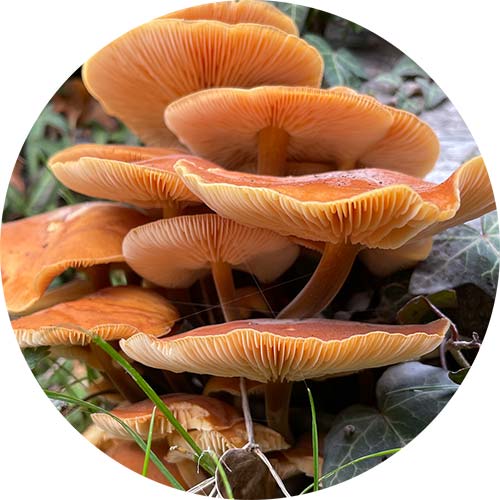
Scientific name: Flammulina velutipes
This mushroom is capable of surviving being frozen solid. This fungi can be found throughout the winter and is a tasty find when there is not much else about
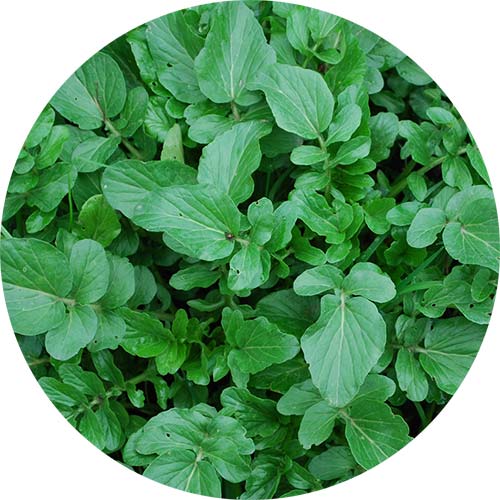
Scientific name: Barbarea vulgari
Can be found hiding in Hedgerows, flower beds and wood edges. This delicious little plant is hot and cress like with a peppery, slightly bitter taste.
Happy foraging everyone!
If you’d like to know a little more about our finds please head over to our sister site, Wild Food UK to see their very helpful mushroom and hedgerow guides. Please let us know if you need any assistance or information and remember to stay safe and never eat anything unless you’re 100% sure it is safe to do so.
Let us know in the comments what you’ve been foraging for this month. We’d love to hear what you’ve been spotting on your adventures recently
Don’t forget to follow us on our social media pages
Instagram @foragingshop @wildfooduk
